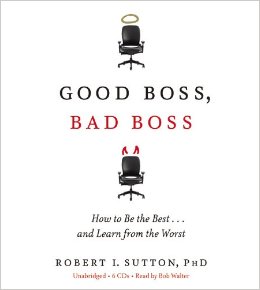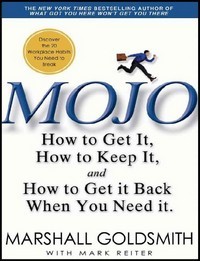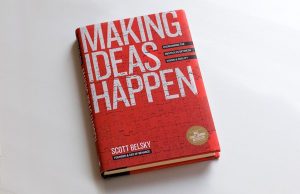Contact Us
A valid email is required in order to receive the samples.
A valid email is required in order to receive the samples.
A valid email is required in order to receive the samples.
SCANNER FREEMONT / Data Analyst
Freemont is responsible for the digital conversion of survey responses while adhering to strict quality standards set forth by its managers. Freemont began its career at TruScore in 1996 as a Data Analyst and quickly became pivotal to TruScore's success. As the years passed, Freemont has slowly matured into part-time Data Analyst while also holding many positions in the work environment including On The Floor, On The Empty Desk, and Hold The Door (AKA Hodor).
RON SACCHI / Master Coach
A former Operations Manager in the High Tech Industry, Ron Sacchi brings decades of leadership and management experience to the organizational development and the executive coaching arena. An energetic thought-leader with a track record of success in all areas of Human Capital development, he has consulted and coached managers in start-ups, joint-ventures, high tech, pharmaceuticals, and media. Because of his business acumen and creative approaches to behavioral change, he is respected in the HR community specifically for the ability to direct, motivate, influence and inspire leaders to improve performance.
Holding an MBA from Saint Mary’s College, Mr. Sacchi is also licensed in various management, leadership and psychological profiling tools.
PAUL CONNOLLY, PH.D. / Assessment Expert
Dr. Connolly’s major expertise includes organizational measurement strategies, survey design and questionnaire development, 360-degree feedback, leadership assessment and leadership development. He has extensive training and experience in psychometrics. He co-authored many 360-feedback surveys with Dr. Clark Wilson, one of the originators of the 360-feedback concept. He has also facilitated the development of surveys with well-known sports performance psychologist Dr. Jim Loehr who founded the Human Performance Institute. He has worked to create assessments with many thought leaders in the Human Resources field.
Dr. Connolly is the author or co-author of seven books and many articles. He is a licensed psychologist and member of the Association for Psychological Science and Society of Industrial and Organizational Psychology. He is a graduate of Holy Cross College and Fordham University, where he received his M.A. and Ph.D. in general psychology.
DR CHUCK MELTZER / Master Coach
Dr. Chuck Meltzer is a Master Coach and President of the SynTECGroup, an organizational development consulting firm. As an executive coach, he draws on his training at a doctoral level in psychology, direct senior management experience and management consulting with a wide cross section of industries. He has developed an extensive series of strategies to assist leaders in creating organizational wide and personal change. Dr. Meltzer has a decade of direct senior management experience and 20 years’ experience functioning within his consulting and coaching practice. His coaching approach is solution focused and time framed. Based on determined goals, a personally customized approach to the process has enabled his clients to realize sustainable change in a manner that allows them to enhance their effectiveness and success as leaders within their organization.
Dr. Meltzer is certified and a master trainer in several coaching assessment tools that he employs within his practice.
ERIN HIRSCHLAND / Master Coach
Erin is an organization development expert with nearly two decades experience serving organizations of all sizes across industries on a broad range of issues. Working with leadership teams, she helps articulate an actionable vision and corresponding values, connecting these to organizational strategy, execution and results. Her tools of choice include senior team retreats, one-on-one executive coaching and proven survey and related instruments.
Erin’s additional expertise includes designing employee selection systems, developing performance management tools that increase performance across the organization over time and employee and customer experience metrics. An effective facilitator and coach, Erin works with leaders and their teams to build trust, commitment and results.
She holds a Bachelor of Arts degree in Psychology from the University of California, Santa Barbara and a Master of Arts degree in Industrial/Organizational Psychology from the University of Colorado.
SONYA D HAMILTON / Senior Assessment Consultant
Sonya is a Senior Assessment Consultant at TruScore with over 24 years of experience designing and delivering 360 feedback solutions and providing 360-based coaching, training and interpretation.
Sonya has extensive experience working with Managers and Leaders, guiding them through the feedback and development journey and providing insights and direction to help maximize their impact within the organization. Sonya’s areas of expertise include 360-based coaching, 360 data analysis and interpretation, Train-the-Trainer certifications, facilitation, survey & questionnaire design, and the design and delivery of assessment programs.
Sonya has a Bachelor’s degree in psychology and a Master’s of Science degree in Industrial & Organization Psychology from Springfield College with a specialty in Counseling and Psychological Services. She is a Master Trainer for TruScore and the Clark Wilson Task Cycle surveys receiving a Certificate of Achievement in “How to Train a Trainer”. In addition, Sonya is certified to administer a variety of other psychometric instruments including employee engagement and organizational instruments as well as the line of Hogan Personality Assessments.
KAYLEY MOTZ / Assessment Advisor
Kayley draws on her extensive customer service background to provide clients with prompt, quality support. In her role as Assessment Advisor, Kayley works to ensure clients’ needs are being met. She assists in project set up and management, as well as processing and quality checking feedback reports. Kayley also aids in the execution of the day-to-day responsibilities of the production team, such as coaching session scheduling and tech support.
CRYSTAL HUGHES / Assessment Advisor
Crystal leverages her extensive background in Industrial-Organizational (I-O) psychology as she manages the day-to-day operational and tactical aspects of multiple and large scale projects for TruScore.
Crystal assists clients with setting up and managing feedback projects, and serves as the point of contact throughout the entire process. She quality checks feedback reports, and provides tech support when needed.
ELLIE SOLOMON / Assessment Advisor
Ellie manages project implementation for the entire 360 assessment feedback process and ensures that each client’s unique needs are met on time and in an efficient manner. Ellie consults with clients who use TruScore’s off-the-shelf Task Cycle® instruments as well as providing hosting solutions for clients using their own survey content, including custom processes and reports. She helps clients navigate through the TruScore® survey hosting software, having literally written the handbook that several clients are using.
She coordinates and implements all translation efforts, including soliciting bids, managing timelines, providing files to the translation companies, implementing translations for the web pages, and testing.
ULLA WESTERMANN / Software Engineer
Ulla uses her years of experience as a software engineer to maintain and add new features to TruScore's applications. She also helps with customizing feedback reports based on client needs.
HANK CURTIS / Business Development Manager
Hank manages and assists in the analyzing, planning, research, and development of TruScore’s objectives and strategic plans in order to achieve business opportunities, growth, and financial profitability.
Hank drives the expansion of TruScore’s direct sales, establishes relationships with TruScore’s clients, identifies clients, and keeps up-to-date on industry trends and client developments.
TAYLOR BRANTON / Bookkeeper
Taylor is responsible for managing payroll and employee fringe benefits programs, in addition to organizing company gatherings and outings. Taylor oversees day to day accounting needs as it relates to client invoicing, accounts payable, and general compliance requirements. She also has a hand in month, quarter, and year end reports and works closely with the CEO and CTO to furnish details necessary to make accurate business projections and decisions.
KURT BLAZEK / Design Director
Kurt uses a unique blend of strategic thinking with dynamic executions to create TruScore’s visual and interactive design. He is responsible for creating, evolving, and sustaining the company’s brand to internal and external stakeholders through multiple mediums. He oversees all of TruScore’s digital strategies, along with the implementation of social media tools and techniques.
Kurt leverages TruScore’s marketing and messaging information to identify, evaluate, and apply methods to maximize the effectiveness of the search campaigns across all of the major search engines. He tracks and measures the ROI of search engine rankings, direct print, and marketing websites.
JOSH SHEETS / Chief Operations Officer
Josh is responsible for all day-to-day aspects of managing the operations and various functional areas including business development, sales and marketing, client delivery, vendor relations, human resources, and IT.
Josh helps to ensure outstanding customer service, and the administration of long-term and day-to-day business processes that complement the delivery of high quality, innovative customer-focused survey tools, assessments and hosted survey offerings.
TOM KUHNE / Managing Partner and CTO
Tom joined TruScore in 1995 and has served in a number of roles, including Data Analyst, IS Manager, and VP & CIO. In his current role as Managing Partner and CTO, Tom is the driving force behind TruScore's technology vision for the present and the future. He manages all aspects of TruScore’s information systems, ensuring all systems meet the highest functionality and security standards.
Tom enjoys working hand in hand with clients and partners to make sure TruScore® delivers the technology and advancement that has become expected of it as a leader in the online assessment marketplace.
DEREK MURPHY / Chief Executive Officer
Derek joined TruScore in 1996 and has served in a number of roles, including Data Analyst, Operations Manager, and President & COO. In his current role as CEO, he is responsible for planning and implementing the strategic direction of the company. In addition, Derek is involved in product development and overseeing the day-to-day business operations for TruScore.
TruScore founder Dr. Daniel Booth, a pioneer in the field of assessment of leadership and management skills, served as a mentor to Derek for more than a decade. During this time, Derek became certified on TruScore’s full line of management and leadership assessments. He currently uses these skills to lead content debriefings with customers and partners on a regular basis.
Many Americans dream of working less, imagining how they might use the extra hours outside of the workplace—perhaps envisioning spending more time with family, taking care of more chores around the home, or devoting time to a new hobby, sport or even a new path in higher education. Lately, some pretty powerful people are thinking the same—and have some good arguments for why American businesses should move in that direction.
In general, the accepted 40-hour workweek has been set since 1938, when then-president Franklin D. Roosevelt signed into place the Fair Labor Standards Act. In the decades since, some have predicted that technology would overrun our need to work long hours. Recently, some have compared our workweek standards to those of other countries and have wondered what the impact of reducing American working hours would be.
Embattled NFL Commissioner Roger Goodell is learning about it—the fallout that comes from losing trust. In his case, he’s losing it because of missteps, unclear responses to issues, and potential lies. But he’s not just facing the fallout from the football organization solely, he’s facing it from the true people who pay him: NFL fans.
Trust is the cornerstone of all good relationships, both inside and outside of the office. Notwithstanding, it can be human nature to make mistakes—inadvertently or even unknowingly at times. At which point begins the task of rebuilding employees’ confidence in worthiness and ability. It can be a difficult and long journey, but the good news is that it’s not impossible. If you find yourself needing to re-create a platform of trust with your employees, here are some things to keep in mind.

by Al Watts. (2010). Minneapolis, MN: BRIO Press. 170 pages.
Reviewed by Diane Byington, Ph.D.
Reading this small book is like snuggling up with a friend next to a fire on a winter evening, sipping a glass of your favorite wine, and listening to him tell you the accumulated wisdom of his life. Al Watts is a veteran consultant who focuses on organizational integrity and also provides dynamite team-building lessons on board his sailboat. He combines these two passions in his new book.

by Robert I. Sutton. 2010. New York: Business Plus. 252 pages.
Reviewed by Diane Byington, Ph.D.
If you're a boss, you'll probably want to have this book on your bookshelf, along with its predecessor, the best-seller The No Asshole Rule. After achieving success with the first book, Sutton decided to research and write about what distinguishes good bosses from bad bosses. He does an excellent job combining research, personal experience, and common knowledge into a readable and helpful set of suggestions for how to be a good boss.
Accordingly, the book is filled with lists telling you, in specific terms, how to succeed as a boss. Casually flipping through the pages, I see lists that include: The 11 Commandments for Wise Bosses, How to Lead a Good Fight, Tricks for Taking Charge, and A Recipe for an Effective Apology. I especially liked that one.
Good leaders should want their employees to not only succeed but also push their limits and raise the bar. One way that can help employees get there, is through regular goal-setting. This can be challenging because often times, employees don’t understand the overarching visionand goals of a company or organization. So it’s important that all players are aligned on the corporate vision in order to effectively start with the goals process. With that firmly in place, a manager can try to push his or her employees by suggesting stretch goals—the type of target that may seem impossible.
There are differing views of the efficacy of stretch goals. Some feel that setting the bar too high can cause dejection, making people feel like they’re getting nowhere and that they’ll never achieve the mark. Some studies even suggest that, with impossible goals in place, people become more and more dishonest or even ruthless in their pursuit of results—which has been shown to cost companies billions each year. Others, however, feel that, particularly for top performers (who are already driven to achieve and succeed), stretch goals can be motivational, and a huge reward in and of themselves once they are achieved.
Are you a micromanager? Or—perhaps worse—you may be one and not realize it?
Here are 5 signs you might be too involved in your employees’ work:
- You rarely delegate (and when you do, you are entirely too nervous about it)
- You find yourself spending more time overseeing (or even doing) other people’s projects than on getting your own done
- You nitpick the details (like putting the cover sheets on the TPS reports) and neglect the 30,000-foot view
- You reassign projects—to yourself—before they’re done
- You discourage autonomy and decision-making at any level under yours
Adding leadership competencies to your manager’s skills Many organizations are struggling with the transition into a global economy, forcing them to flatten their management hierarchy. As a result, today’s managers are faced with increased responsibilities as they take on the…
Alright, 360 Assessments do not fall into the testing category that you can “Ace”, however there are steps you can take to ensure that you are getting the most out of your 360 Assessment. Here’s one question to get you started:
Which of the following will help you get the most out of a 360 feedback program?
Acknowledge the Process – Feedback is a positive thing and should be used as a development tool. If you go into a 360 assessment with this in mind, you will get out of it what you put into it, which should be a clear and concise view of your strengths and weaknesses within your organizational culture. Feedback will tell a story, not fiction, and it’s up to you to listen to it. But awareness is only the first step.

by Marshall Goldsmith. New York: Hyperion. 184 pages.
Reviewed by Diane Byington, Ph.D.
Are you burned out at work? Or, have you lost some enthusiasm and wish you could get it back? If so, check out this book. Marshall Goldsmith brings his long experience as an executive coach to the concept he describes as Mojo: that positive spirit toward what we are doing now that starts from the inside and radiates to the outside. In other words, we've got to feel enthusiastic toward what we are doing before we can send enthusiasm out for others to see. This book details how to increase your Mojo.
The most useful part of the book, for me, was his scorecard for measuring your Mojo. Goldsmith says we need to bring five qualities to an activity in order to do it well. These are: motivation, knowledge, ability, confidence, and authenticity. Likewise, five benefits we may receive from an activity include: happiness, reward, meaning, learning, and gratitude.

By Scott Belsky, Making Ideas Happen. (2010). New York: Penguin. 231 pages.
Reviewed by Diane Byington, Ph.D.
This book might be for you if:
You have lots of ideas but have trouble getting them to actually happen
You tend to be disorganized and need help organizing your projects
You are excited and full of energy at the beginning of a project but get bored and distracted as time goes by, or you love starting projects but rarely complete them
Your job is to manage creative professionals
Scott Belsky, CEO and Founder of the online creative network, Behance, has spent his professional life working with creative people and helping them to make their ideas "happen." His thesis is that great ideas abound, but getting them to completion is extraordinarily difficult and requires a different skill set than what is used to generate the idea. This book presents his ideas for what it takes to actualize an idea.